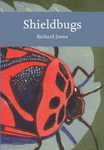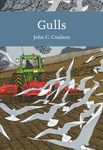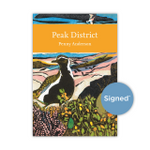By
Leon (NHBS Catalogue Editor)
30 Jul 2021
Written for Paperback

If you asked ten scientists what made them choose their profession, would you get ten different answers? My instinct tells me that curiosity is an overriding factor for many. It certainly was for palaeontologist Richard Fortey. Published just days after his 75th birthday,
A Curious Boy reflects on his earliest years and was such a disarming and enjoyable memoir that I finished it in a single day.
Fortey the boy was possessed by an insatiable curiosity that encompassed almost everything: natural history, chemistry, geology, botany, mycology, palaeontology, biology, art, poetry, music, literature... his was "a sponge-like mind in a world pregnant with possibilities and discoveries" (p. 33). He refused to recognise the division between art and science, and throughout his early years, "a growing cultural life ran in parallel with my natural-history enthusiasms" (p. 160). A not-so-subtle nudge by his grammar school headmaster send him down the path scientific, but it was not until he was headed for Cambridge University to read natural sciences that he decided that this "should be an end to the intellectual blunderbuss. Time to buckle down and find a single target" (p. 226).
More than once, his curiosity became a reprieve from life's cruel twists and turns. Without wanting to spoil it, there are two particularly painful episodes delivered here with such raw intensity that they will leave the reader stunned. His study and work became all-absorbing and bore him through these tragedies. There is also a more subtle motif of loss running through this memoir. Innocence is lost when several revelations force him to see his father in a new light. Recollections of the natural world lay bare the loss of once common birds, plants, and mammals. An old botanical field guide becomes "a record of how the environment has changed during my lifetime" (p. 200-201). Like many others, Fortey, too, has noticed today's clean windscreens after a drive through the countryside, a portent of the insidious loss of insects. "Sometimes, a longer memory is a recipe for gloom" (p. 11).
Curiosity serves as a source of embarrassment and guilt, if only in hindsight. He reflects with some remorse on typical boyhood activities of the time, collecting birds eggs and killing butterflies to pin them in collections. Others verge more on guilty pleasures and pranks. An early fascination with chemistry drives him to synthesize and deploy ethyl isocyanide stink bombs, the "Mount Everest of the malodorous" (p. 85). A particularly disarming quality of this memoir is its unabashed honesty. Fortey observes this unusual child gorging himself on the arts and sciences, and wonders: "If I could meet my teenage intellectual apogee now I don't know whether I would admire him or feel sorry for him" (p. 180). He then deflates himself further when a chance encounter with the polymath George Steiner made him realise that "I was as short of true omniscience in the same proportion as I fell short as a poet" (p. 181).
In that sense, I felt the book's title hid a double entendre. He remarks that his mother must have thought him a curious boy for being the only child to roam the Geological Museum in London while his peers were playing football on Saturdays. Did she mean to suggest that he was possessed of a certain queerness, in the original sense of the word? In that light, the book's cover strikes me as one of the most appropriate I have seen in a long time: a horn of plenty overflowing with the subjects of his interest, drawn in a style that reminded me of Terry Gilliam's absurd animations for Monty Python.
But Fortey's curiosity also fuels defiance. For all the guilt over his childhood collections, he doubts that such activities have been the driving force in the population declines of animals and plants. Rather, collections are important as they "[...] are archives of what was there, regardless of moral judgements about the way the specimens were collected" (p. 44) and "claims without documentary support about how things used to be might well be treated with suspicion by the next generation" (p. 207). Similarly, taxonomy matters to him. Without names, "humans wander blindly in an unstructured wilderness" (p. 29), while "to fail to recognise species is like being unaware of words that are essential to cogent speech" (p. 210). These are sentiments that have been expressed by other authors and resonate deeply with me.
Those interested in the science are served as well. There are some interludes here about graptolites, colonial plankton that does not really resemble anything alive today. Initially he collects their fossils at Abereiddy Bay in Wales as a boy, while a later discovery described here proofs worthy of publication before he has even written up anything about trilobites. The first trilobite collections he makes in Svalbard suggest three distinct communities, corresponding to an onshore-to-offshore depth gradient. When similar communities are retrieved in Nevada, this aligns perfectly with the then-novel theory of plate tectonics. The start of Fortey's career coincided with this idea finally finding wider acceptance in the geological community.
Given that he has written about his work on trilobites elsewhere, they remain bit players in this book.
A Curious Boy only tells the start of their story, ending with Fortey attending his first major geology conference in 1972. Some of his personal and professional adventures later in life, working at the London Natural History Museum, have been told in
Dry Store Room No. 1. However, my feeling is that there is enough material for a second memoir, not unlike Dawkins did with his recent double act. I would happily make time to hear more of Fortey's remarkable life story.
At some point, Fortey mentions that one perk of his eclectic teenage interests is that he "acquired an armoury of words that served his older version well" (p. 180), as I hope the various quotes above have revealed. There is depth and beauty to his writing and its cadence is bewitching; I read
A Curious Boy in a single day. This was, shamefully, my introduction to Fortey, and I enjoyed it so much that I immediately went ahead and bought five of his previous books after finishing it.

































